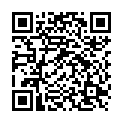|
|
|
| Module code: MAB.4.2.1.21 |
|
|
2SU (2 hours per week) |
|
2 |
| Semester: 6 |
| Mandatory course: no |
Language of instruction:
German |
Assessment:
Written exam
[updated 19.02.2018]
|
EE-K2-524 (P200-0020) Energy system technology / Renewable energies, Bachelor, ASPO 01.10.2012
, semester 5, optional course, non-technical
EE-K2-524 (P200-0020) Energy system technology / Renewable energies, Bachelor, ASPO 01.04.2015
, semester 5, optional course, non-technical, course inactive since 14.03.2018
E2426 (P200-0020) Electrical Engineering and Information Technology, Bachelor, ASPO 01.10.2018
, optional course, non-technical
KI607 Computer Science and Communication Systems, Bachelor, ASPO 01.10.2014
, semester 6, optional course, non-technical
KIB-RFA1 (P200-0020) Computer Science and Communication Systems, Bachelor, ASPO 01.10.2021
, semester 6, optional course, non-technical
KIB-RFA1 (P200-0020) Computer Science and Communication Systems, Bachelor, ASPO 01.10.2022
, semester 6, optional course, non-technical
MAB.4.2.1.21 (P200-0020) Mechanical and Process Engineering, Bachelor, ASPO 01.10.2013
, semester 6, optional course
MAM.2.1.1.20 (P610-0556) Engineering and Management, Master, ASPO 01.10.2013
, optional course, general subject, course inactive since 06.10.2020
PIBWN38 (P200-0020) Applied Informatics, Bachelor, ASPO 01.10.2011
, semester 6, optional course, not informatics specific
PIB-RFA1 (P200-0020) Applied Informatics, Bachelor, ASPO 01.10.2022
, semester 4, optional course, not informatics specific
PIB-RFA1 (P200-0020) Applied Informatics, Bachelor, SO 01.10.2026
, semester 4, optional course, not informatics specific
|
30 class hours (= 22.5 clock hours) over a 15-week period.
The total student study time is 60 hours (equivalent to 2 ECTS credits).
There are therefore 37.5 hours available for class preparation and follow-up work and exam preparation.
|
Recommended prerequisites (modules):
None.
|
Recommended as prerequisite for:
MAB.4.2.1.22 Russian for Beginners 2
[updated 19.10.2016]
|
Module coordinator:
Dr. Julia Frisch |
Lecturer:
Ulrike Reintanz
[updated 27.03.2013]
|
Learning outcomes:
The course _Russian for Beginners 1_ is aimed at learners who have no previous knowledge of the language. The modules _Russian for Beginners 1_ and _Russian for Beginners 2_ are based on one another. In the course of the two modules, participants will first reach proficiency level A1 and then advance to level A2 of the European Framework of Reference for Languages.
The goal of the course is to provide students with basic knowledge of the Russian language, which will enable them to communicate in general and professional situations, both orally and in writing. To do so, all four skills (speaking, listening comprehension, reading and writing) will be trained equally. We will focus on oral communication in order to develop communicative competence in work-related situations, especially through role playing and the use of dialogues. Important grammatical structures will be taught in order to support and supplement the content of the course.
During the course, intercultural aspects will also be addressed so that students develop an awareness of cultural specificities and are able to act and communicate appropriately and competently in the respective situations.
[updated 19.02.2018]
|
Module content:
In the course _Russian for Beginners 1_ lessons 1 to 7 from the textbook _Otlitschno
1_ will be worked on.
Establishing contact:
_ Greetings and saying farewell
_ Introducing yourself and others
_ Giving information about yourself requesting information about others
_ Asking how someone is feeling
_ Getting to know business partners
The professional world
_ Describing jobs and activities
_ Arranging appointments
_ Planning activities
Oral and written communication
_ Requesting general information (name, nationality, telephone number, e-mail address)
_ Appointments with colleagues and business partners
_ Time, daily schedule, scheduling
_ Making telephone calls
Intercultural competence
Basic knowledge about Russian culture, history and society
In addition, both the Cyrillic alphabet and basic grammatical structures will be taught
(e. g. declination of nouns, noun case usage, adjectives, personal pronouns and prepositions,
verb conjugation, syntax)
Students are expected to work on and expand their basic vocabulary independently.
[updated 26.02.2018]
|
Teaching methods/Media:
Teaching and learning materials (print media, slides, audio-visual
teaching materials) and recommended podcasts compiled specifically for the learning group.
[updated 19.02.2018]
|
Recommended or required reading:
The course is based on the following textbook and will be supplemented by the following:
_Otlitschno 1_ Lehrbuch ISBN: 978-3-19-0044771 und Arbeitsbuch ISBN: 978-3-19-014477-8
[updated 19.02.2018]
|


